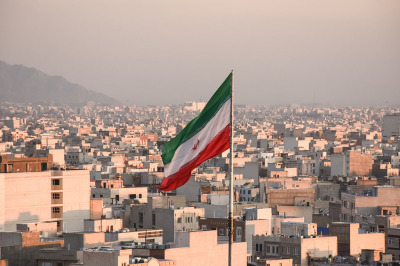Iranian Christians haven't stopped fighting. Don't forget them

When we read stories of persecution against Christians in Iran — such as the recent harsh sentences against brothers and sisters like Yasin Mousavi, a Christian convert who was arrested and sentenced to 15 years in prison for his conversion from Islam — our immediate reaction is one of deep injustice. These believers are peaceful, loving individuals who strive to be a positive influence in society, praying even for their nation's leaders. Yet, they face severe penalties simply for practicing their faith. Why does the Iranian government treat them so harshly?
The primary reason for the severe persecution of Iranian Christians lies in the government's fear of Muslim-background believers. The Islamic Republic of Iran is acutely aware of the rapid growth of Christianity within its borders and feels threatened by it. This fear is rooted in the transformative nature of Christian faith; once someone converts to Christianity, they rarely revert to Islam. The dramatic life changes that come with this conversion are evident to friends and family, leading to a ripple effect of more conversions.
The Islamic government knows that this faith is not just personal but contagious. The visible change in new Christians’ lives often prompts curiosity and interest among their social circles, leading to more conversions. This viral nature of Christianity poses a significant threat to the Islamic establishment's control over religious life in Iran.
The main “crime” for which many Iranian Christians are imprisoned is attending house churches. This reveals the regime's fear of Christians gathering together. In 2013, all church buildings were closed to the public, except for a few that conduct services in Armenian and Assyrian languages. These churches are prohibited from admitting Muslims or Muslim-background Christians, under the threat of closure.
This reaction stems from a recognition of the power inherent in communal Christian worship. In the West, church attendance is often seen as optional, but in Iran, the government seems to understand better than many Western Christians the profound societal influence a united church can wield. This is exemplified by the fact that if Christians in the U.S. were united, they could significantly influence political outcomes, such as elections.
Knowing they cannot completely stop the growth of Christianity, the Iranian government's strategy is to intimidate and isolate believers. By imposing long prison sentences on those who witness or attend house churches, they aim to discourage Christians from gathering or sharing their faith. The message is clear: “If you are a Christian and you stay at home without sharing your faith, you will be safe. But if you gather with others or witness, you face years in prison.”
This intimidation is not limited to ordinary believers. Iran Alive is also targeted. Despite not being a political activist, I am seen as a threat because of our large and growing following within Iran. The government fears that we could mobilize followers against them, causing significant unrest.
In the face of this persecution, we can take actions that support our brothers and sisters in Iran.
Pray: First and foremost, we must pray for their courage, wisdom, and close fellowship with God. Many imprisoned Christians testify to feeling the Lord's presence strongly while in jail and even use their time there to minister to fellow inmates. The Iranian government, aware of this, often places Christian prisoners in solitary confinement to prevent them from converting others.
Send Letters: Letters can make a tangible difference. Former prisoners report better treatment, cancelled executions, and earlier releases when letters began arriving on their behalf. Send letters urging release at Article 18 or send an encouraging letter directly to prisoners through PrisonerAlert.com.
By engaging in these actions, we can make a profound impact and stand in solidarity with Iranian Christians facing persecution. Their silent struggle calls for our support and unwavering prayer.
Dr. Hormoz Shariat is the founder of Iran Alive Ministries, which uses Satellite TV to reach the millions of lost and broken people in Iran and the rest of the Middle East. He is the author of Iran’s Great Awakening.





















